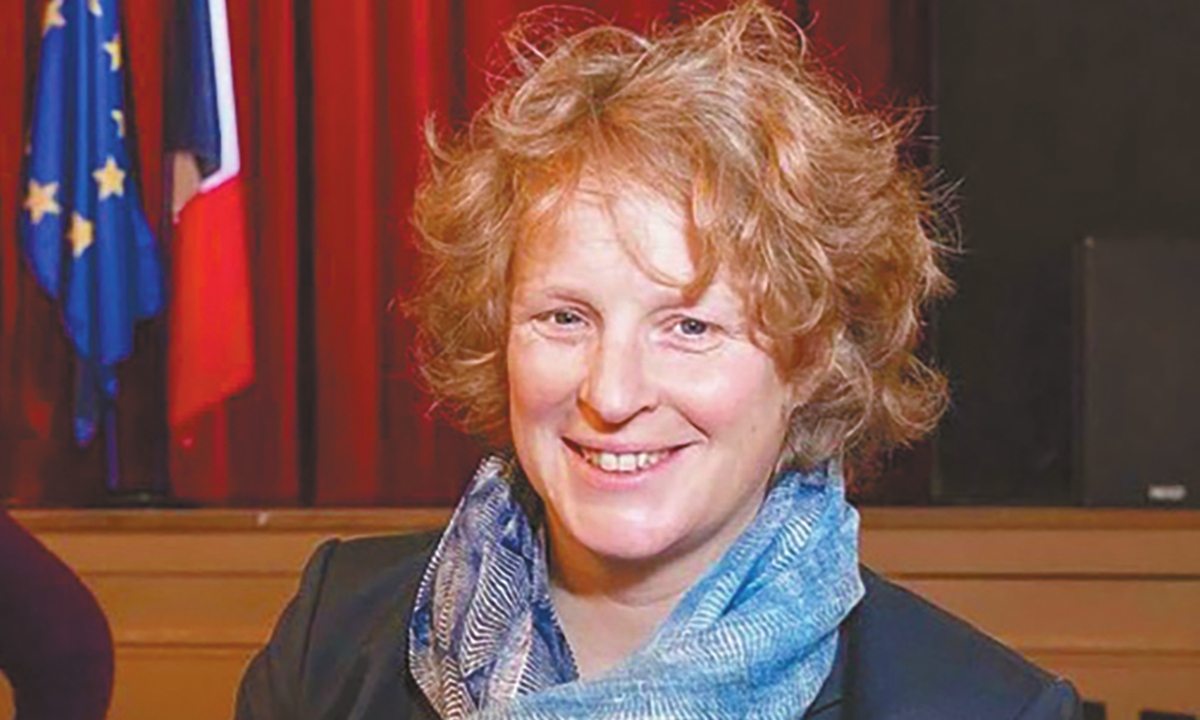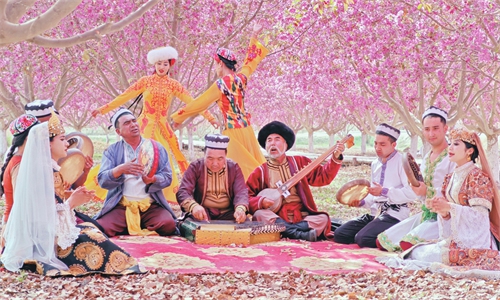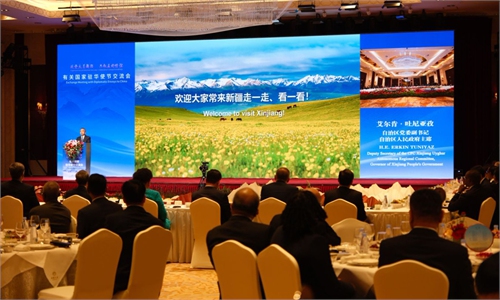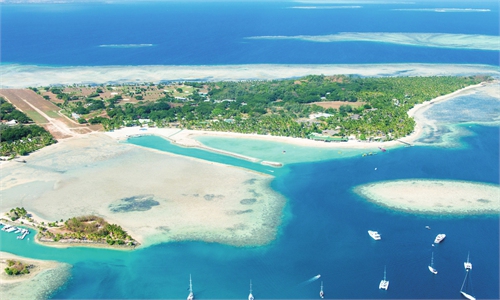
Sonia Bressler Photo: Courtesy of Bressler
Editor's Note:
Xizang, a region known for its breathtaking landscapes and unique cultural traditions, has long become a target of Western smear campaigns and falsehoods about China. What is the truth? In the "Truth Seen in Xizang" series, the Global Times publishes conversations with and articles from scholars and observers from around the world who have visited the region, sharing their firsthand experience of traveling to Xizang and observing the daily lives of people there. Through their insights and experiences, we aim to present an authentic perspective on the Xizang Autonomous Region.
In the fifth piece of the series, Global Times (GT) reporter Wang Zixuan talked to French writer Sonia Bressler (Bressler), who has traveled to Xizang multiple times. She shared her experiences during her field trip to the region, noting that it's about striving for a more grounded and complex understanding.
GT: You have traveled to Xizang multiple times, and your books Journey to the Heart of Tibet and Discovering Tibet take an in-depth look at the social development of Xizang. Have you noticed any new changes and developments in Xizang? Which changes impressed you most?
Bressler: Over the course of my travels, I've been deeply struck by the gradual transformation of Xizang - not only in terms of infrastructure, but also the daily lives of its people. Beyond roads and railways, what stands out most is the expanded access to education, healthcare and forms of cultural development that seek to harmonize modernity with cultural rootedness.
Among the most remarkable changes, I would highlight the emergence of a young Tibetan generation - educated, creative and digitally connected - who are using technology to tell their own stories. This reflects a growing desire to reclaim the narrative, far from the stereotypes often projected from the outside.
GT: You once mentioned that "The Chinese government has made great efforts in promoting social development and cultural protection of Tibet... Now the young Tibetans have more ideas about their future and no longer want to be a Lama or a farmer only." On May 23, 1951, Xizang was peacefully liberated. On March 28, 1959, people in Xizang launched the democratic reform, freeing a million serfs. How much do you know about this historical period? How do you view the life of people in Xizang today?
Bressler: The democratic reform of 1959 marks a pivotal moment in Xizang's contemporary history. It brought an end to a theocratic and feudal system, breaking away from a hereditary serfdom that had shaped the region for centuries. I have taken time to study this period through testimonies, archival documents and firsthand field encounters. Like all major historical ruptures, it came with tensions and pain - but it also paved the way for the emergence of new rights, particularly for women and those who had lived in bonded labor.
Today, living conditions in Xizang have significantly improved, especially in education and healthcare. Extreme poverty has been largely reduced, and state-led programs support rural revitalization and environmental protection.
Yet, challenges remain - particularly in safeguarding linguistic and cultural richness in an increasingly globalized world.
GT: This year marks the 60th founding anniversary of the Xizang Autonomous Region. On March 28, China's State Council Information Office released a white paper titled "Human Rights in Xizang in the New Era," which noted that anti-China forces in the US and other Western countries have spread lies about the "worsening human rights situation" in Xizang. Why has Xizang become the smear target of those Western media outlets? Are the US and the West manipulating the concept of "human rights"?
Bressler: Xizang has become a symbolic focal point for geopolitical discourses that go far beyond local realities. It serves, in many ways, as a proxy for ideological tensions inherited from the Cold War, where the "right to speak about the other" becomes an instrument of power. The notion of human rights - which should be universal and culturally sensitive - is sometimes weaponized for strategic purposes.
It is essential to remember that genuine human rights must be rooted in a deep understanding of historical, social and cultural complexity. The Western conception of rights, often based on individualist paradigms, is not the only valid one. We must respect the diversity of development models, particularly when they lead to tangible progress on the ground.
GT: In Western countries, there are still some people who ignore the great efforts made by the Chinese government for the development of Xizang and view China with "tinted glasses." Do you think individuals such as yourself who tell the truth are still misunderstood? What would you say to those people who spread false information about Xizang?
Bressler: Yes, speaking about what one sees, experiences and understands from the field can require courage. One can quickly be accused of being biased, manipulated, or even complicit, simply for refusing to adopt simplistic narratives. But I believe it is our responsibility, as intellectuals, to speak with rigor and nuance - even when it doesn't align with the dominant binaries of public discourse.
To those who spread falsehoods - often without ever having set foot in Xizang - I would simply say: go see for yourself, listen, ask questions, challenge your own certainties. This is not about denying tensions or contradictions; it's about striving for a more grounded and complex understanding.
GT: More and more Western tourists are traveling to Xizang and they are posting their stories on social media. How will this affect the Western public's perception of Xizang? Why are more people willing to unveil the lies about Xizang propagated by the West after their personal experiences?
Bressler: Personal experiences shared on social media have a powerful effect: they humanize. When travelers encounter the warmth of local hospitality, the richness of Tibetan traditions, and visible changes in villages and schools, they naturally begin to question dominant narratives. This isn't propaganda - it's the power of reality, lived experience.
More and more people realize that what they were told depicted a frozen or oppressed region, however, it is, in fact, dynamic, multi-voiced, and full of deep aspirations. This awareness can help foster a more respectful dialogue - one that is less ideological and more anchored in real human encounters.



